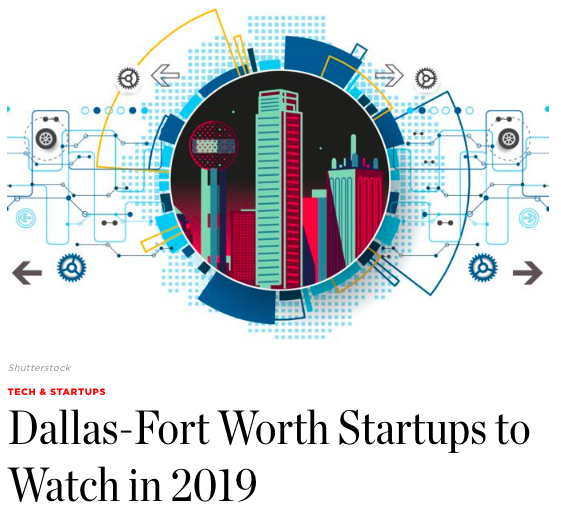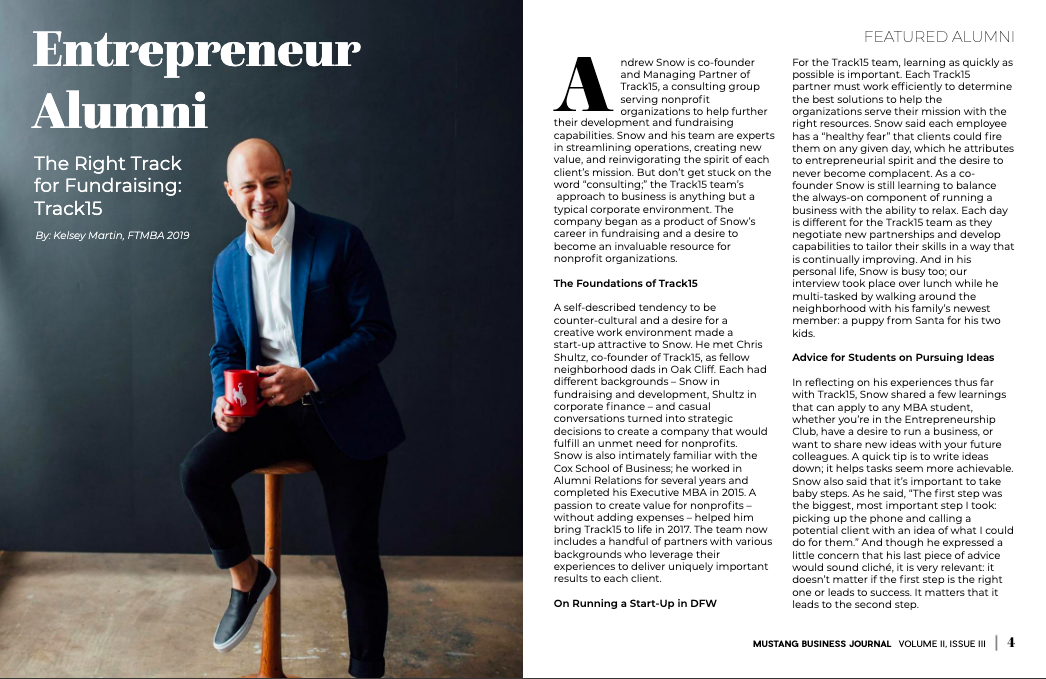Ryan and Elizabeth Schorman bring an entirely new meaning to the term “power couple.” In the past year, they took what started as a hobby and launched an entirely new career. GratiFILM is helping nonprofit organizations create high-quality videos that showcase their mission. Track15 has had the pleasure of working with them on many projects and cannot recommend their services enough! In our interview with Ryan and Elizabeth, we took a deep dive into their backgrounds and explored what key components are necessary to create a successful presence through video.
Track15: You all have such an interesting story and background. What has your journey been up to this point in your career?
Elizabeth: Ryan studied film and marketing at the University of North Texas and his passion for video started by filming skateboarding when he was a teen. After college, he worked for several advertising agencies doing video and commercials. He grew tired of making “the best ‘bad’ car commercials” and began working part-time at our church, South Main Baptist Church in Houston, doing video work. I studied finance at Texas A&M University and worked as an oil & gas investment banker from 2007-2016.
In 2011, Ryan had an idea to make accessories for high-end, cinema cameras and we started the company, Wooden Camera, on our dining room table. Ryan learned to design the products in CAD while I managed the business side. Eventually, we moved to Dallas and grew the Wooden Camera team to 40 people, including opening a retail store in LA.
Ryan: In 2016, we sold Wooden Camera but continued to run it. Then, in 2020, we volunteered to help with a few video projects for nonprofits through our relationship with Track15 and friends in the Dallas, Oak Cliff neighborhood. It became clear that it was time to move on from Wooden Camera and being
able to use our skills to help nonprofits was a very fulfilling way to transition from running a for-profit business.
Elizabeth: GratiFILM, a 501c3 itself, was a way for us to create high-quality video content at low or no cost and help other nonprofits tell their stories. We are fortunate to have different but complementary skills and to still be able to work well together after 11 years of marriage. In GratiFILM, I am the producer (and grip/teleprompter person) while Ryan writes, directs, and edits.
Track15: Tell me about the specific problem that GratiFILM helps nonprofit organizations solve.
Elizabeth: During the pandemic, nonprofits needed a way to tell their stories to volunteers, clients, and especially donors. Without the ability to hold in-person events, demand for video content was very high and if you can tell a story in a high-quality and interesting way, organizations are more successful in generating awareness and raising donations. We are excited to partner with a variety of organizations and tell their stories.
Track15: Can you share a story about a specific client, how they used your service, and what the outcome was?
Ryan: A friend connected us with The Human Rights Initiative of North Texas (HRI) who was looking to create a PSA to inform people without legal status of their healthcare rights. We collaborated with the HRI team, a volunteer animator, and several actresses in the Dallas area who narrated the video in four different languages. It was such a privilege to work with each person, learn about HRI, and contribute to a worthwhile cause.The video was a learning experience for us, filming and editing in English, Spanish, French, and Arabic, as well as working with an animator. The final product turned out so great and we hope it is helpful to the HRI clients.
Track15: What do you think are the essential components of a fundraising video?
Elizabeth: Highlighting what the organization fundamentally does is the most important part, but doing it in an interesting way with a mix of a moving interview and footage of their operations and clients. Also, during COVID-19, it is important to communicate how the organization has pivoted and still provides services to its clients so that donors continue to support them. Finally, there should always be a call to action, whether that be fundraising, volunteering, or donating in-kind items.
Track15: How do you make decisions about what content to keep and what to edit out when creating the final version of a fundraising video?
Ryan: We are firm believers that videos need to hold the watcher’ attention, compared to an in-person event, where the audience is “stuck”. With virtual events, the audience can choose to multitask, skip through the video, or stop watching altogether. We start by editing down the initial script to cut out excess words and keep the segments short and fast paced. Being able to pre-record a virtual event lends itself to a higher quality and faster paced video where you can choose the best take and edit out any excess time.
Track15: What do you think are the essential components of a virtual event in which you are pre-recording or live streaming video?
Ryan: After a few live streams, we’ve settled on pre-recording as the way to go. It’s much easier to produce a polished video with a smaller crew, which is essential during COVID-19. We can also make sure that there are no mistakes and no wasted time which is key to keep the audience engaged. A good formula for any video, pre-recorded or live, is an engaging emcee, a few minutes showing what the organization does, pre-COVID and now, an interview with a committed donor or volunteer, and a closing call to action.
Track15: What is most surprising to you about working with nonprofits?
Elizabeth: It’s been surprising to see the sheer number of nonprofits, each with their own specific missions, dedicated staff, board of directors, and volunteers. We’ve enjoyed learning about each organization and working with a variety of people for the betterment of our community as a whole.
Track15: Why are high-quality videos such an important part of a nonprofits fundraising toolkit?
Elizabeth: A high-quality video gives the nonprofit credibility and, therefore, improves their ability to raise awareness and fundraise successfully.
Track15: What do you think other people should know about GratiFILM?
Elizabeth: We are always looking for volunteers in the film industry to help write, film, or edit. Volunteers can sign up at www.GratiFILM.org







